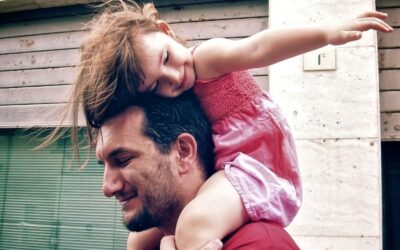Learn how to deal with the opposition and tantrums that are a frustrating part of toddlerhood
The transformation from baby to toddlerhood ushers in amazing developmental changes. Improvements in physical strength, motor skills, ability to communicate, and intellectual curiosity all come together to turn your babbling baby into a walking, talking toddler.
It’s exciting to witness your child meeting new milestones and enjoying their newfound ability to explore the world around them. However, these first steps into independence are not without challenge – as your child begins to move and grow, they also start to understand and appreciate their own individualism. Although in the grand scheme of things, a strong sense of self is a positive indicator of growth and development, the resulting tantrums as your toddler tests boundaries and asserts their independence can be a challenge to deal with as a parent.
Exploring “bad” behavior
One of the most valuable learning scenarios for young children involves exploration. Children are like miniature scientists – they take a guess about what might happen, carry out their experiment to prove or disprove that theory, and repeat as necessary until they reach satisfactory results. It’s really pretty impressive until it involves coloring on walls or having a massive behavioral meltdown in a restaurant.
The most important thing to remember while handling toddler tantrums is that your child’s opposition is perfectly normal – healthy, in fact – and largely temporary. Your child isn’t only learning about the world and its rules but also their own emotions and ability to communicate. They’re not going to sit you down for a quiet discussion about how your reaction makes them feel unheard or admit their accountability in a situation; it’s simply outside their developmental skill set. However, they may yell, scream, lie on the floor, throw something, cry, or surprise you in other ways. It’s incredibly frustrating but also age appropriate.
Consider the following suggestions for dealing with toddler tantrums.
Set your child up for success
Having toddlers is a lifestyle change. While it’s true that you have to continue your basic daily routine, it’s also true that it may be worth making some sacrifices or temporary changes as you get through this stage of life.
Try to head tantrums off at the pass by predicting and preventing them. First, consider your child’s temperament. Are they resistant to change? Full of rambunctious energy? Socially withdrawn? Adjust your plans accordingly. If your child has difficulty transitioning from one activity to the next, give them plenty of warning and preparation about impending changes. If they’re very active, try to burn off some energy and set clear expectations before attending a quiet event or a sit-down restaurant meal. If they’re shy, prepare them for who they are about to socialize with, and run gentle interference to set up positive interactions.
Make sure your child is well rested, is not hungry, and has a fun distraction if you’re setting out for a long day of chores.
Validate their feelings
Frustration often comes from a sense of not feeling heard. Of course, you know that they don’t want to leave the park, but do they understand that you understand that but have other reasons for needing to leave? Validate their feelings no matter how absurd their reaction may seem, explain the “why” behind your actions, and reassure them that you will be back soon or will do something fun at home.
Talking to your child about their emotions is an important part of their social and emotional development and gives them the language to convey their feelings appropriately. Try to offer choices when possible by saying, for example, “I know you don’t want to get ready for bed, but your body needs sleep so it can grow. Do you want to pick out your pajamas or brush your teeth first?”
Stay firm
It can be difficult to maintain your composure as your child is losing theirs, but it’s essential. Don’t react with anger or get emotional – part of their experimentation process involves gauging your reaction. Try not to engage in a battle of wills, but remain firm, follow up with appropriate consequences, and stay true to your word. Once a toddler realizes they can change your mind with their behavior, you’ll be seeing more of that behavior.
The most important part of surviving the tantrum phase of toddlerhood is to remember that your child’s behavior is developmentally appropriate and actually helpful to their growth. Assist with their newfound independence by predicting and preventing possible problems, helping them expand on their ability to express emotions, and staying calm and in control, even when you feel like neither is true. Above all else, remember that toddlerhood is temporary, and focus on the joy of watching them grow into the person that they are.
The Virginia Infant & Toddler Specialist Network helps improve the quality of care for infants and toddlers through extensive resources, services, and education for caregivers. Learn more about how we can help you improve the standard of care.




